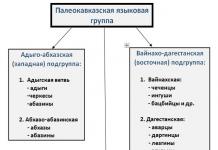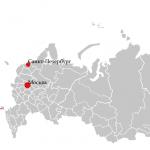Profession welder
The modern world is completely based on metal. Without it, it is impossible to build tall buildings, cars, ships. Metal is used everywhere: in everyday life, in industry, in construction. Therefore, a metal specialist who connects metal parts into complex structures using electric welding will always be needed. A welder is a responsible, almost virtuosic profession, on the quality of whose work a lot depends - the durability and stability of building structures, the operation and service life of various equipment.
The origin of the welding profession can be considered 1802, when V. Petrov discovered the effect of an electric arc, when it occurs between two carbon electrodes, a high temperature is created. This temperature is so high that it can melt metals. A considerable period of time passed from the moment of this discovery to its industrial application. But decades later, the method of joining metals using the electric arc method revolutionized various industries, construction and became a mass technology for joining materials.…
Welding work is used in many industries. Welders work on construction sites, creating structures and systems of various communications, in industry, where they apply their experience and skills in mechanical engineering, shipbuilding and in other areas, such as energy, oil refining, and agriculture. It is difficult to name a segment of production where the labor of a welder would not be used.
Welder, as a profession, is divided into several specializations: manual arc welder, gas welder, operator of automatic welding machines. Workers in all these specialties are engaged in one thing - connecting metal structures, complex apparatus, parts, and assemblies using the method of metal fusion. The quality of the welds depends on the skill of the welders. Any mistakes or negligence in the work can lead to catastrophic consequences. It’s scary to think what poor-quality welding work on oil or gas pipelines could lead to. A professional welder must know electrical engineering, metal melting technology, the properties of gases used for anti-oxidation, methods and principles of operation of the units and equipment used. Compliance with safety precautions and industrial sanitation is of great importance.
The advantages of the profession include prestige and high demand in the labor market, both in the public sector of the economy and in the private sector. Young specialists who have just graduated from college will not have to look for a job for a long time - it finds them on its own. Welders without experience are readily accepted into housing and communal services and private service organizations. As they gain experience, they are entrusted with more responsible tasks and work in industry and construction sites. Accordingly, wages increase.
The disadvantages of the profession are difficult working conditions, work on open construction sites in any weather, heavy strain on vision due to the high brightness of the electric arc, infrared and ultraviolet radiation. Electric welders belong to the “hot shop” professions due to the high harmfulness of production due to the large release of gases and heat during welding work.
You can learn the welding profession at vocational schools and colleges. Training is carried out for 3 years on the basis of 9 classes and 2 years on the basis of 11 classes in the specialties “welder of electric welding and gas welding works” and “operator of welding and gas plasma cutting equipment.”
In recent years, there has been a shortage of welding workers. Almost no production is complete without welding work. Although this profession is not so popular among young people today, the need for good craftsmen does not decrease either in our country or abroad.
A welder is a working specialty in demand in production. This type of activity involves joining plastics and metals without any fasteners or parts. This profession requires a high level of responsibility, since the service life of all kinds of equipment, the stability and durability of building structures are directly related to the quality work of the welder. It is thanks to welding that metal elements will be reliably connected both during the manufacture of new structures or products, and when repairing old elements.
The services of a welder are used not only in mechanical engineering or auto repair, but also on construction sites, in industry, in shipbuilding, in agriculture, in the construction of bridges and buildings. In the energy and oil refining industries, it is also impossible to do without a welding master. It will not even be possible to make a grill grate without such a specialist.
The profession of a welder involves the following specializations:
- craftsmen working on press machines, that is, resistance welding;
- thermite cooking specialists;
- welders using diffuse welding equipment;
- workers on electron beam welding installations;
- electric welders;
- gas welders.
The categories of welders are determined by the professional qualities of the specialist and his skill.
- 1st category - plastic welder. Welding of plastic bags and plastic parts. The master is obliged to prepare the workpieces, dismantle and assemble the elements for cooking.
- 2nd category – master of thermite welding. The responsibilities of this specialist include the ability to use manual arc and plasma welding, as well as understand simple drawings.
- 3rd category – welder of basic and simple types of welding. These are masters in the field of arc and manual welding.
- 4th category – specialist in manual arc and plasma welding. It works with parts of medium complexity. The responsibilities of a master of this category include manual oxygen cutting of complex products.
- 5th category – worker for welding complex assemblies and parts. This specialist is able to cook various types of elements not only under pressure, but also under the influence of an electron beam. He can also weld vacuum connections.
- 6th category – a specialist with a wide profile, can work with any type of work on oil and gas pipelines. He is a jack of all trades when it comes to welding of any complexity. A 6th category specialist is a professional of the highest class.
You cannot do without the services of a welder not only during the construction of houses, but also during renovation work on premises. Welding specialists will replace radiators and heated towel rails, repair utilities, and perform work on the fire extinguishing system. You cannot do without such a specialist when replacing risers and sewers.
The profession of a welder is quite multifaceted. A specialist in this field should understand not only alloys and metals, but also electrical engineering, know the properties of gases and the principles of working with the necessary equipment and units.
Personal qualities
To work as a welder, you must have good physical training, since working with heavy metal structures is beyond the strength of a weak body. That is why there are almost no women in this profession. Various working conditions in cramped and dark spaces also require endurance from craftsmen. Sometimes you have to weld in hard-to-reach places in awkward positions, so in the profession of a welder, flexibility and good mobility of the whole body, especially the hands, will come in very handy.
Monotonous work requires masters to be able to concentrate and focus their attention for a long period. And for this, first of all, you need excellent vision and light perception. It is also impossible to cope with the work of a welder without good hand-eye coordination.
A professional in his field is always distinguished by balance, patience and perseverance. There is no doubt that he is a hard worker. And so that the hand does not tremble when welding any seam, the master must be mentally balanced.
Education (What do you need to know?)
In modern society there is an increase in industrial production. Construction also does not stand still and its pace is only increasing every day. Therefore, today there is no way to do without the profession of a welder.
You can learn this profession in vocational colleges and schools, where students undergo special vocational training both in theory and in practice. After 9 grades, you will have to spend 3 years in such educational institutions. And having completed all 11 classes - only 2 years. Technical schools and colleges offer various specialties as welding equipment adjusters and gas and electric welding specialists.
In order for any welding work to be carried out with the least risk, it is necessary to strictly observe safety precautions and have a good knowledge of sanitary standards. Any mistakes or negligence of a welder jeopardizes not only his health, but also the safety of others.
To improve skills and increase proficiency in a welder’s work, you should learn from more knowledgeable and professional colleagues, and also attend advanced training courses. To learn new technologies and welding methods, you need to constantly study. And the more experience a young specialist gains, the faster he will be able to increase his rank, and accordingly, his salary will increase significantly, sometimes reaching 100 thousand rubles.
Place of work and career
A specialist with a welding diploma is in demand today more than ever before. Manufacturing enterprises, construction, laboratories for new developments, factories - this is not a complete list of places where qualified welders are so needed. Wherever it is necessary to connect metal elements and structures, a welding master is required.
Few young specialists aspire to work in the housing and communal services sector, since the salaries here are not at all high. But having extensive work experience and a high rank, you can find work in the oil and gas industry, where they will pay much more.
Having mastered the profession of a welder, there is no doubt that work will always find you, since good specialists are needed not only in production, but also in everyday life. Therefore, a professional in this field will never be left without income.
Suitable educational specialties: Auto mechanic, maintenance and repair of motor vehicles, driver of road and construction machines, construction and operation of buildings and structures, installation and operation of equipment and gas supply systems, installation and operation of internalKey items: Certificate competition.
Tuition cost (average in Russia): 90,000 rubles
Job description:
*Tuition fees are for 3 years of college.
Currently, the welding profession is one of the most in demand in the construction industry. In conditions of shortage of working personnel, these specialists are of particular importance, because welding work is required in almost every production, and there are very few young craftsmen.
Welder is a working specialty and involves working in welding production. The specialist is engaged in connecting metal structures, parts, products, containers and pipelines of various types, composition, purpose and level of complexity. The quality of work and welding seams depends on a professional welder. In his work, mistakes are not made that could lead to catastrophic consequences. The profession of a welder is divided into several specialties: gas welder, manual arc welder, operator of automatic welding machines.
In their work, welders use electric arc welding or a gas torch. In the first case, an electric arc is used to melt metals, and the temperature at the end of the welding electrode reaches 5,000 degrees Celsius. This exceeds the melting point of all existing metals. When using a gas torch, a flame is formed due to the combustion of a mixture of flammable gas (hydrogen, propane, gasoline, butane, benzene, kerosene) and oxygen. This type of welding is usually used when replacing radiators and pipes in residential premises, due to the absence of sparks during the operation.
While working, it is very important for welders to observe safety measures and use special masks with tinted glass to protect their face and eyes. This mask significantly suppresses the brightness of flames and sparks.
Types of welders:
- welders on press welding machines;
- welders on diffuse welding installations;
- thermite welders;
- gas welders;
- welders on electron beam welding installations;
- electric and gas welders.
Required professional skills and knowledge
- knowledge of electrical engineering, metal melting technology;
- knowledge of the properties of gases used for anti-oxidation;
- knowledge of the methods and principles of operation of the units and equipment used;
- knowledge of occupational health and safety instructions;
- knowledge in the field of physics, chemistry.
Personal qualities
- physical endurance, good eyesight;
- dexterity, flexibility of movements of legs, arms, whole body;
- patience;
- hard work;
- perseverance.
Pros of the profession
- high demand in the labor market;
- fairly high salaries for experienced welders.
Cons of the profession
- difficult working conditions (sometimes you have to work in extreme conditions, at high altitudes or under the influence of various meteorological factors);
- heavy load on vision due to the high brightness of infrared and ultraviolet radiation, electric arc (the appearance of the disease electroophthalmia);
- the presence of other occupational diseases due to inhalation of industrial dust (silicosis, pneumoconiosis, bronchial asthma).
Place of work
Almost all industries require welding work, for example, in mechanical engineering, shipbuilding, agriculture, and the oil refining industry.
Main places of work for welders:
- construction sites;
- auto repair shops;
- industrial plants, factories;
- organizations providing communications media.
Salary and career
There is a shortage of technical specialists in Russia, so the salary of a first-class welder can exceed the income of a middle manager. Young specialists receive about 20,000 rubles, the salary of experienced high-level workers (the sixth highest category, assigned to highly qualified specialists) averages from 30,000 to 45,000 rubles monthly. But, as with other professions, the amount of a welder’s salary depends on the place of work, experience, hard work and desire to constantly improve their skills. So the lowest salary for specialists is in the housing and communal services sector, and the highest in the oil and gas industry.
Typically, college graduates do not have to look for a job for a long time. Welders without experience are accepted into private service organizations and housing and communal services. With the acquisition of experience, young specialists are already entrusted with more responsible tasks and work in industry and construction sites.
Education
Welding education can be obtained at vocational schools or colleges. The training lasts three years on the basis of 9th grade and 2 years on the basis of 11th grade in the specialties “welder of electric welding and gas welding works” and “operator of welding and gas-plasma cutting equipment.”
Welders on press welding machines; welders on diffuse welding installations; thermite welders; gas welders; welders on electron beam welding installations; electric and gas welders.
Welder - a metalworker who joins metal parts into complex structures using electric welding. The profession is suitable for those who are interested in work and farming (see choosing a profession based on interest in school subjects).
Welder is a working specialty and involves working in welding production. The specialist is engaged in connecting metal structures, parts, products, containers and pipelines of various types, composition, purpose and level of complexity. The quality of work and welding seams depends on a professional welder. In his work, mistakes are not made that could lead to catastrophic consequences. The profession of a welder is divided into several specialties: gas welder, manual arc welder, operator of automatic welding machines.
In their work, welders use electric arc welding or a gas torch. In the first case, an electric arc is used to melt metals, and the temperature at the end of the welding electrode reaches 5,000 degrees Celsius. This exceeds the melting point of all existing metals. When using a gas torch, a flame is formed due to the combustion of a mixture of flammable gas (hydrogen, propane, gasoline, butane, benzene, kerosene) and oxygen. This type of welding is usually used when replacing radiators and pipes in residential premises, due to the absence of sparks during the operation.
While working, it is very important for welders to observe safety measures and use special masks with tinted glass to protect their face and eyes. This mask significantly suppresses the brightness of flames and sparks.
Types of welders:
- welders on press welding machines;
- welders on diffuse welding installations;
- thermite welders;
- gas welders;
- welders on electron beam welding installations;
- electric and gas welders.
Required professional skills and knowledge
- knowledge of electrical engineering, metal melting technology;
- knowledge of the properties of gases used for anti-oxidation;
- knowledge of the methods and principles of operation of the units and equipment used;
- knowledge of occupational health and safety instructions;
- knowledge in the field of physics, chemistry.
Personal qualities
- physical endurance, good eyesight;
- dexterity, flexibility of movements of legs, arms, whole body;
- patience;
- hard work;
- perseverance.
Pros and cons of the profession
Pros:
- high demand in the labor market;
- fairly high salaries for experienced welders.
Cons
- difficult working conditions (sometimes you have to work in extreme conditions, at high altitudes or under the influence of various meteorological factors);
- heavy load on vision due to the high brightness of infrared and ultraviolet radiation, electric arc (the appearance of the disease electroophthalmia);
- the presence of other occupational diseases due to inhalation of industrial dust (silicosis, pneumoconiosis, bronchial asthma).
Place of work
Almost all industries require welding work, for example, in mechanical engineering, shipbuilding, agriculture, and the oil refining industry.
Main places of work for welders:
- construction sites;
- auto repair shops;
- industrial plants, factories;
- organizations providing communications media.
Salary and career
There is a shortage of technical specialists in Russia, so the salary of a first-class welder can exceed the income of a middle manager. Young specialists receive about 20,000 rubles, the salary of experienced high-level workers (the sixth highest category, assigned to highly qualified specialists) averages from 30,000 to 45,000 rubles monthly. But, as with other professions, the amount of a welder’s salary depends on the place of work, experience, hard work and desire to constantly improve their skills. So the lowest salary for specialists is in the housing and communal services sector, and the highest in the oil and gas industry.
Typically, college graduates do not have to look for a job for a long time. Welders without experience are accepted into private service organizations and housing and communal services. With the acquisition of experience, young specialists are already entrusted with more responsible tasks and work in industry and construction sites.
Salary as of 03/31/2020
Russia 25000—130000 ₽
Moscow 35000—100000 ₽
Education
Welding education can be obtained at vocational schools or colleges. The training lasts three years on the basis of 9th grade and 2 years on the basis of 11th grade in the specialties “welder of electric welding and gas welding works” and “operator of welding and gas-plasma cutting equipment.”
Welder is a worker, a specialist in welding production.
A welder is a responsible, almost virtuosic profession, on the quality of whose work a lot depends - the durability and stability of building structures, the operation and service life of various equipment.
Welding work is used in many industries. Welders work on construction sites, creating structures and systems of various communications, in industry, where they apply their experience and skills in mechanical engineering, shipbuilding and in other areas, such as energy, oil refining, and agriculture. It is difficult to name a segment of production where the labor of a welder would not be used.
Welder, as a profession, is divided into several specializations: manual arc welder, gas welder, operator of automatic welding machines. Workers in all these specialties are engaged in one thing - connecting metal structures, complex apparatus, parts, and assemblies using the method of metal fusion. The quality of the welds depends on the skill of the welders. Any mistakes or negligence in the work can lead to catastrophic consequences. It’s scary to think what poor-quality welding work on oil or gas pipelines could lead to. A professional welder must know electrical engineering, metal melting technology, the properties of gases used for anti-oxidation, methods and principles of operation of the units and equipment used. Compliance with safety precautions and industrial sanitation is of great importance.
Working conditions:
Works both indoors and outdoors. It is possible to perform work at heights and in very uncomfortable and dangerous positions. Heavy load on the musculoskeletal and visual systems. To protect against heat and light radiation, he uses special clothing and a mask (shield) with protective light filters. The working hours are mainly two shifts. The pace of work is free. The profession has 1-6 categories.
The advantages of the profession include prestige and high demand in the labor market, both in the public sector of the economy and in the private sector. Young specialists who have just graduated from college will not have to look for a job for a long time - it finds them on its own. Welders without experience are readily accepted into housing and communal services and private service organizations. As they gain experience, they are entrusted with more responsible tasks and work in industry and construction sites. Accordingly, wages increase.
The disadvantages of the profession are difficult working conditions, work on open construction sites in any weather, heavy strain on vision due to the high brightness of the electric arc, infrared and ultraviolet radiation. Electric welders belong to the “hot shop” professions due to the high harmfulness of production due to the large release of gases and heat during welding work.
Personal qualities:
Physical strength and endurance. Visual acuity and color perception. Flexibility, mobility of arms, legs and the whole body. Developed vestibular apparatus. Ability to focus attention for a long time. Good hand-eye coordination. Spatial imagination and technical thinking. Accuracy. Equilibrium.
Education:
You can learn the welding profession at vocational schools and colleges. Training is carried out for 3 years on the basis of 9 classes and 2 years on the basis of 11 classes in the specialties “welder of electric welding and gas welding works” and “operator of welding and gas plasma cutting equipment.”
Medical restrictions:
Cardiovascular diseases. Respiratory diseases. Disorders of the musculoskeletal system (sciatica, osteochondrosis...). Mental illnesses and nervous system disorders. Irritability. Allergic diseases. Severe visual and hearing defects
Applications:
Manufacturing enterprises, factories, laboratories for the development and testing of new production samples, construction.
Welding work is required in almost any industry, and there are very few young craftsmen. That's why welders' salaries are high: a recent college graduate earns little, while a welder with experience earns more. During practical training in the third year, students are paid a salary. But even the prospect of getting good money for some reason does not impress the guys who choose more fashionable and at the same time less in demand professions.
The level of salaries, depending on the place of work, differs greatly; when completing the same order, you can receive completely different money. In the housing and communal services sector today, perhaps, wages are the lowest, while the oil and gas industry is the most generous.


















